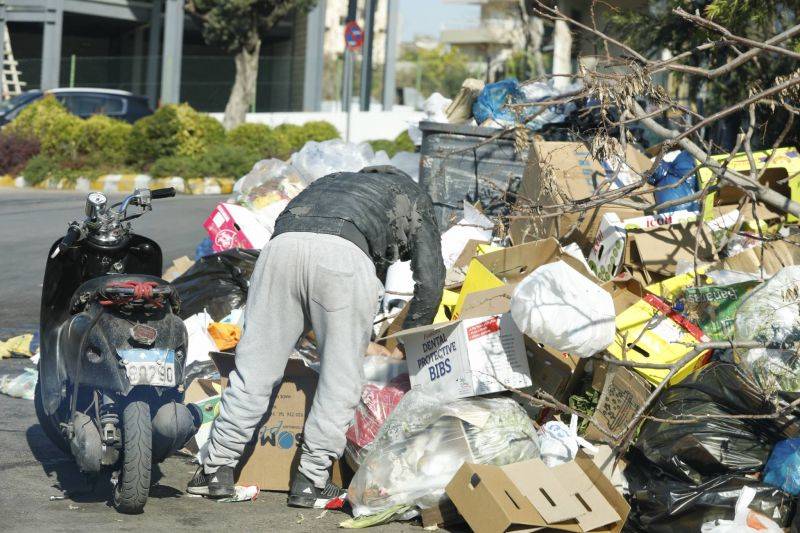
A man rummages through garbage in Lebanon. (Archival photo Marc Fayad)
BEIRUT — The World Bank’s latest report on the performance of the Lebanese economy, released Tuesday, estimates that Lebanon’s GDP shrank 10.5 percent in 2021 to $21.8 billion, after a 21.4 percent contraction in 2020.
The economic monitor report ranks the decline in economic activity as the highest contraction in a list of 193 countries over the same period. Lebanon also managed to crack another top spot, placing third behind Venezuela and Sudan for the highest inflation globally in 2021.
The new report, titled “The Great Denial,” comes on the back of two other updates published since the start of the crisis in 2019, providing a detailed overview of the depth of the damage inflicted on the Lebanese economy and society. The first in the fall of 2020 was entitled “The Deliberate Depression” and the second in the spring of 2021, “Lebanon Sinking.”
The team of economists at the World Bank, squarely place the blame for Lebanon’s “deliberate depression” on a ruling elite that is more concerned about holding onto power than laying the groundwork for a sustainable economic recovery.
The report attributes the steady rise in inflation to the depreciation of the lira, in particular linking the surge from June onwards to the removal of subsidies on imported goods.
“The path to the subsidy removal was opaque, inadequately coordinated between (caretaker) Government and the central bank, and critically, lacked timely alleviation/compensation measures,” the authors noted.
The report also notes that government revenues are estimated to have halved as a percentage of GDP from 2020 to 2021. At 6.6 percent of GDP, the revenue ratio is the third lowest worldwide, ahead only of Somalia and Yemen.
The only sliver of positive news was in the services sector, led by tourism. Statistics show tourist arrivals to have increased 101.2 percent over the first seven months of 2021.
The World Bank called once more for Lebanon to urgently implement an appropriate economic reform plan to avoid “the complete destruction of Lebanon’s social and economic networks” and the “irreversible loss of human capital.”
The report offered a number of recommendations to the government:
• The adoption of a new monetary policy framework that would regain confidence and stability in the exchange rate.
• The implementation of a debt restructuring program that would achieve short-term fiscal space and medium-term debt sustainability.
• A comprehensive restructuring of the financial sector to regain solvency of the banking sector.
• A phased, equitable fiscal adjustment aimed at regaining confidence in fiscal policy.
• The adoption of growth-enhancing reforms.
• The implementation of enhanced social protection programs.